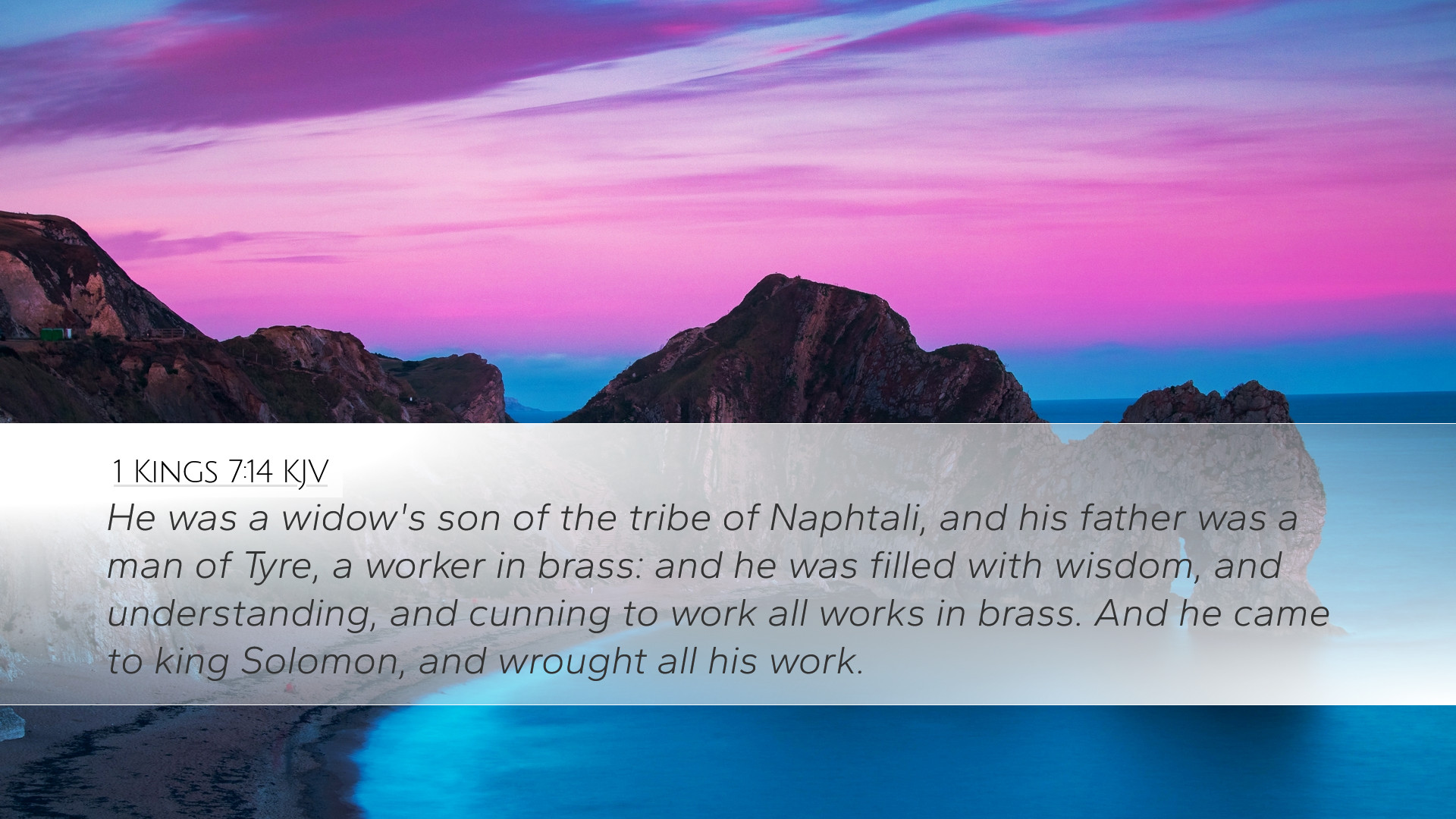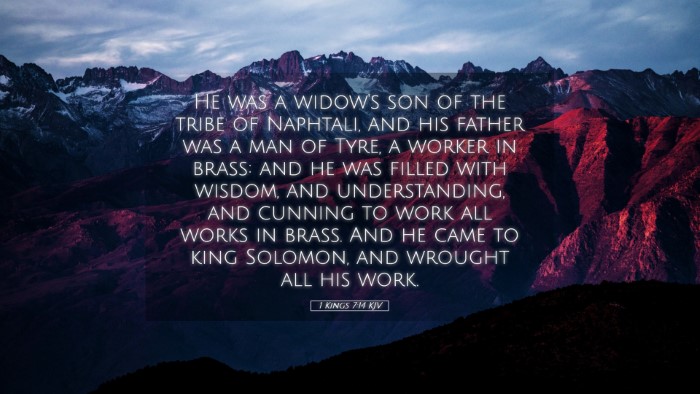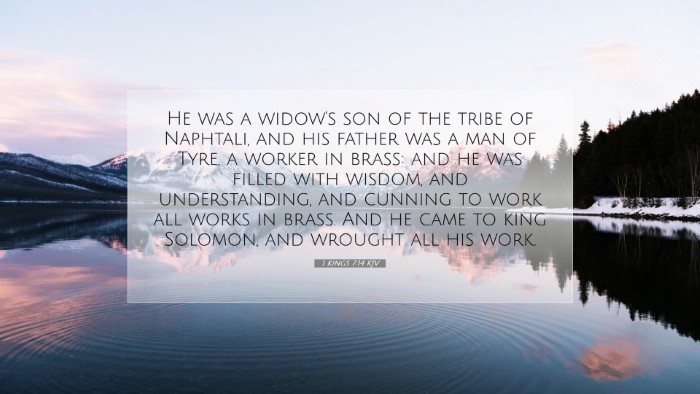Old Testament
Genesis Exodus Leviticus Numbers Deuteronomy Joshua Judges Ruth 1 Samuel 2 Samuel 1 Kings 2 Kings 1 Chronicles 2 Chronicles Ezra Nehemiah Esther Job Psalms Proverbs Ecclesiastes Song of Solomon Isaiah Jeremiah Lamentations Ezekiel Daniel Hosea Joel Amos Obadiah Jonah Micah Nahum Habakkuk Zephaniah Haggai Zechariah MalachiVerse
1 Kings 7:1 1 Kings 7:2 1 Kings 7:3 1 Kings 7:4 1 Kings 7:5 1 Kings 7:6 1 Kings 7:7 1 Kings 7:8 1 Kings 7:9 1 Kings 7:10 1 Kings 7:11 1 Kings 7:12 1 Kings 7:13 1 Kings 7:14 1 Kings 7:15 1 Kings 7:16 1 Kings 7:17 1 Kings 7:18 1 Kings 7:19 1 Kings 7:20 1 Kings 7:21 1 Kings 7:22 1 Kings 7:23 1 Kings 7:24 1 Kings 7:25 1 Kings 7:26 1 Kings 7:27 1 Kings 7:28 1 Kings 7:29 1 Kings 7:30 1 Kings 7:31 1 Kings 7:32 1 Kings 7:33 1 Kings 7:34 1 Kings 7:35 1 Kings 7:36 1 Kings 7:37 1 Kings 7:38 1 Kings 7:39 1 Kings 7:40 1 Kings 7:41 1 Kings 7:42 1 Kings 7:43 1 Kings 7:44 1 Kings 7:45 1 Kings 7:46 1 Kings 7:47 1 Kings 7:48 1 Kings 7:49 1 Kings 7:50 1 Kings 7:51

